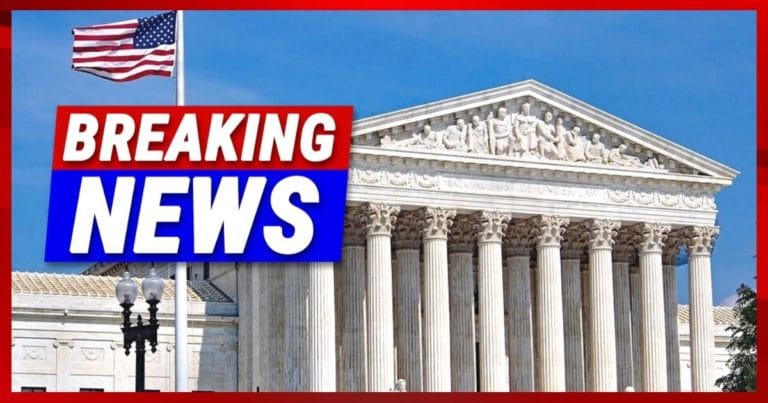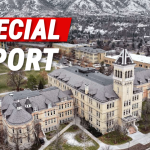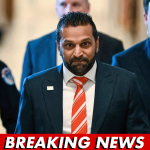
Americans sent a clear message in November: they wanted change in Washington. But apparently, the entrenched bureaucracy didn’t get the memo. (Shocking, right?) Across the federal government, unelected officials continue wielding enormous power over our daily lives, seemingly immune from the accountability that comes with democratic elections.
The latest example of this infuriating trend emerged Wednesday from the highest court in the land. In a decision that should alarm every citizen who believes in representative government, the Supreme Court has chosen to shield a Federal Reserve governor from presidential oversight—even in the face of serious allegations about her conduct.
From ‘Fox News’:
The Supreme Court on Wednesday agreed to review President Donald Trump’s effort to fire Federal Reserve Governor Lisa Cook, and will allow her to remain in her spot on the board until the court can review the case in January, the court said — delivering a near-term setback to Trump in his push to remove Cook from the nation’s central bank.
The Supreme Court’s decision to let Cook remain on the Fed board while it reviews the case is significant. In recent months, justices have overwhelmingly sided with Trump on emergency stay requests while underlying cases moved forward.
The Court’s decision marks an unprecedented moment in American history. President Trump has become the first president in the Federal Reserve’s 112-year existence to attempt removing a sitting governor for cause. Yet instead of allowing the democratically elected president to exercise oversight, the Court has circled the wagons around Lisa Cook, who faces allegations of mortgage fraud—that she obtained favorable interest rates through false statements on loan applications.
A Question of Accountability
Cook, appointed by Trump’s Democratic predecessor as the first Black woman Fed governor, stands accused of declaring multiple properties as her “primary residence” to secure better rates. While she hasn’t been charged criminally, these allegations raise serious questions about the integrity of someone setting interest rates for millions of Americans.
The administration’s legal team put it bluntly: interest rates affecting every American shouldn’t be determined by someone who allegedly lied about the rates she secured for herself. Yet the Supreme Court, which has consistently sided with Trump on emergency requests in recent months, suddenly pumped the brakes when it came to Fed accountability. (Must be nice to have that kind of protection.)
The Fed’s Sacred Cow Status
What makes this decision particularly outrageous is the Court’s blatant double standard. Just months ago, the justices allowed Trump to remove Democrats from the National Labor Relations Board and Merit Systems Protection Board. But when it comes to the Federal Reserve, suddenly they discover a “uniquely structured, quasi-private entity” deserving special protection. Since when did unelected bankers become more powerful than the president?
This quasi-private designation reveals the problem’s heart: the Fed operates as a shadow government, making decisions affecting every American’s wallet while remaining insulated from voter accountability. Cook’s lawyers even warned that her removal could cause “shock waves in financial markets”—essentially arguing that democracy itself threatens economic stability. Even Andrew Jackson managed to take on the central bank of his day.
Pattern of Resistance
The Cook case fits a maddening blueprint of resistance to presidential authority. Trump has repeatedly sought to bring accountability to agencies designed to operate beyond political influence—agencies that have become political nonetheless, just not accountable to voters. While Cook claims Trump’s real issue is monetary policy disagreements, the mortgage fraud allegations provide clear “for cause” justification that courts should respect.
The irony is thick: the same establishment that spent years investigating every aspect of Trump’s finances now protects a Fed governor from scrutiny over her own financial dealings. Documents may or may not vindicate Cook, but shouldn’t Americans at least get answers before she continues making decisions about their economic future?
When the Supreme Court hears arguments in January, more than Cook’s job will be at stake. The case will test whether any president—regardless of party—can bring accountability to the permanent bureaucracy that increasingly runs our lives. If fraud allegations and presidential authority combined can’t touch these people, what exactly would it take?
Key Takeaways
- Trump becomes the first president in 112 years attempting to fire a Fed governor
- Supreme Court shields Lisa Cook despite serious mortgage fraud allegations
- Court shows double standard: allows firing from other agencies, protects Fed
- Unelected Fed officials wield enormous power with zero voter accountability


